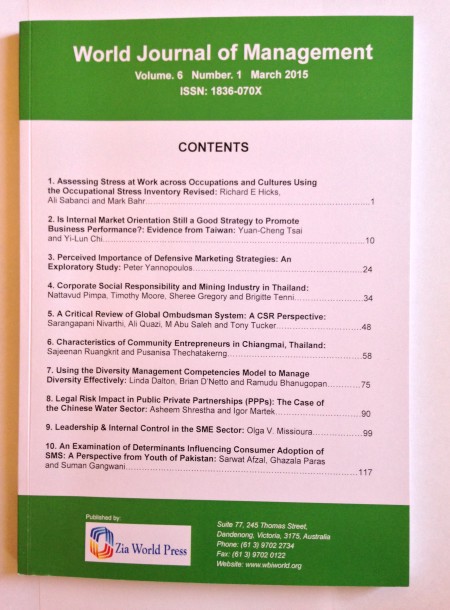An Examination of Determinants Influencing Consumer Adoption of SMS: A Perspective from Youth of Pakistan
An Examination of Determinants Influencing Consumer Adoption of SMS: A Perspective from Youth of Pakistan
The massive explosion of information and communication technologies (ICTs) has accelerated the rapid expansion of mobile phone services which has resulted in extensive use of short message service (SMS) throughout the world. SMS has become a vital part of users’ daily life causing the decrease in voice service revenue since it has facilitated broader form of communications. With limited research in Pakistan pertaining to what are the factors that determine consumers’ intention to use SMS, this study attempts to identify these factors and the extent to which they have influenced consumers’ intention to use SMS. It was hypothesized in this study that perceived usefulness, perceived ease of use, perceived enjoyment and perceived cost will have significant positive impact over intention to use SMS. All the hypotheses were supported except the hypothesis for perceived cost. A mail survey was conducted in different universities through self-administered structured questionnaire and the data was collected from 329 graduates and undergraduates of those universities applying the convenience sampling procedure. Data was tested against the research model using Pearson correlation and multiple regression approaches. The findings of this study provide an imminent perspective to mobile service providers to work on newly emerging non voice services and also to develop new SMS marketing strategies.Key Words: information and communication technology, short message service, perceived usefulness, perceived ease of use, perceived enjoyment, perceived cost, intention to use

